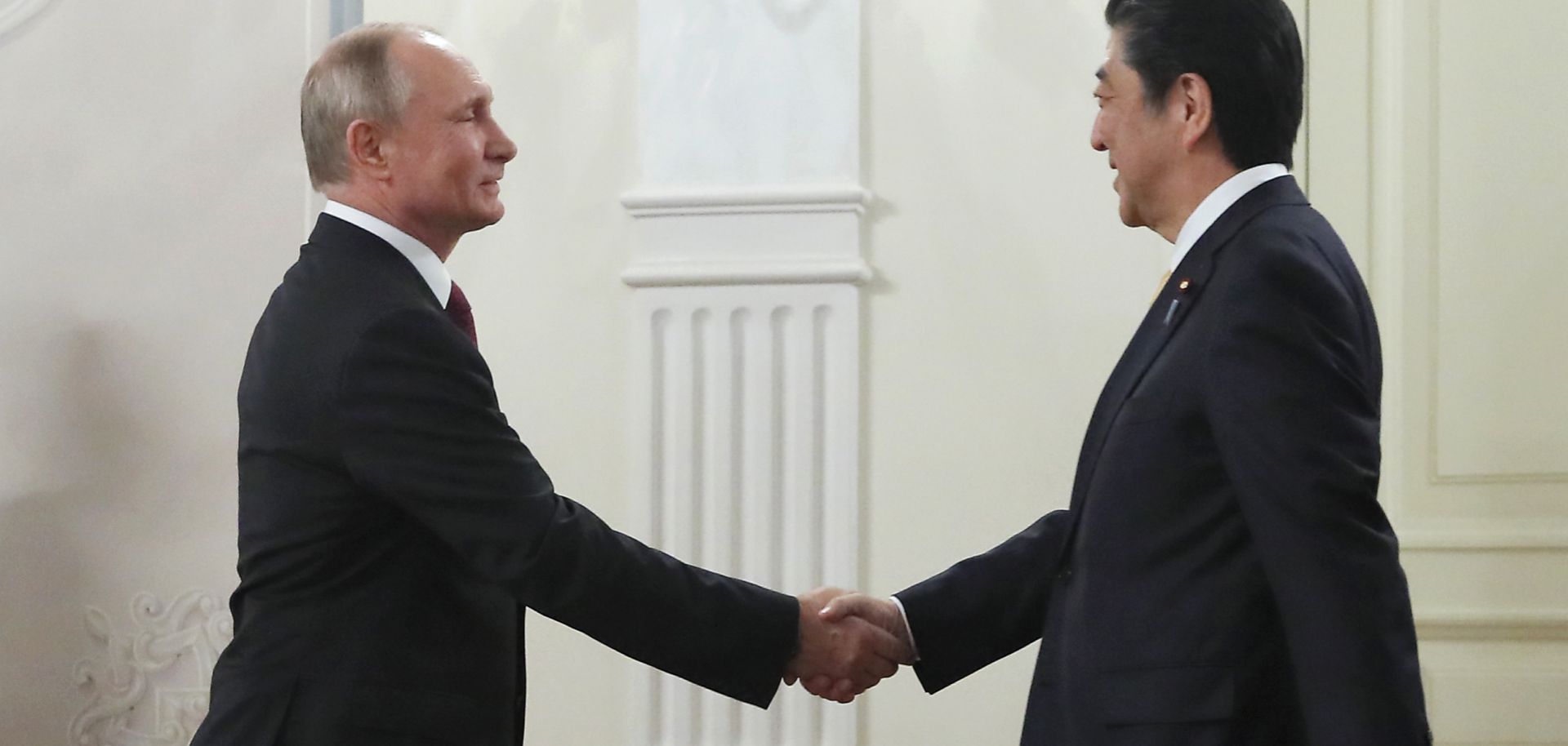ASSESSMENTS
The Odds Appear Stacked Against Abe's Dreams of a Russian Treaty
Jan 22, 2019 | 15:13 GMT

Russian President Vladimir Putin (L) shakes hands with Japanese Prime Minister Shinzo Abe before the opening ceremony of the cross-cultural year of Russia and Japan at the Bolshoi Theater in Moscow on May 26, 2018.
(MAXIM SHEMETOV/AFP/Getty Images)
Highlights
- Japanese Prime Minister Shinzo Abe, whose time in office ends in September 2021, is racing against the political clock to conclude a World War II peace treaty with Russia and settle their long-standing territorial disputes over the Kuril Islands.
- In setting the goal to sign the treaty by mid-2019, Abe hopes to cement his political legacy, therefore securing enough political capital to successfully tackle his domestic reform agenda before he must leave power.
- But public sensitivity inside both countries over the island issue and the wide starting gap between Japanese and Russian positions on the future sovereignty of the islands creates diminished expectations for a breakthrough in the negotiations.
Subscribe Now
SubscribeAlready have an account?
